IF NUTRIENTS were The Avengers, fiber would be Jarvis.
Hear us out. Fiber isn’t oversized like the Hulk (who would be … protein?), oft-misunderstood like Thor (fat?), or small-but-mighty like Ant-Man (vitamin B-12, for sure).
Fiber is soft-spoken, steadfast, and kind of holds the whole team together. Just like Jarvis. And if you decide that maybe fiber isn’t important to you, well, then you suffer the nutritional equivalent of Age of Ultron.
Fiber (and Jarvis) are important. You see, fiber is a type of carbohydrate that our bodies can’t digest. While the nutrient doesn’t actually provide energy, vitamins, or minerals, fiber has a slew of health benefits.
-
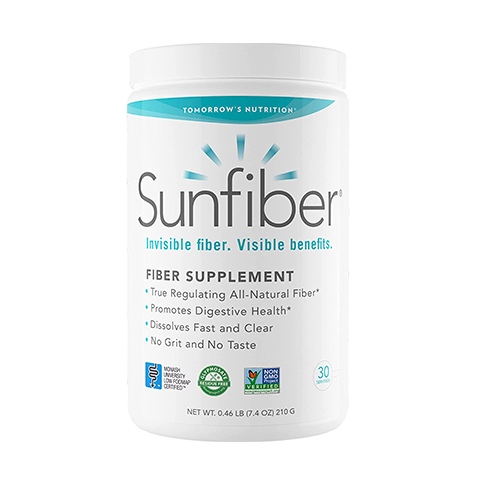
Best Guar Fiber Supplement
Tomorrow’s Nutrition SunFiber
Read more
-
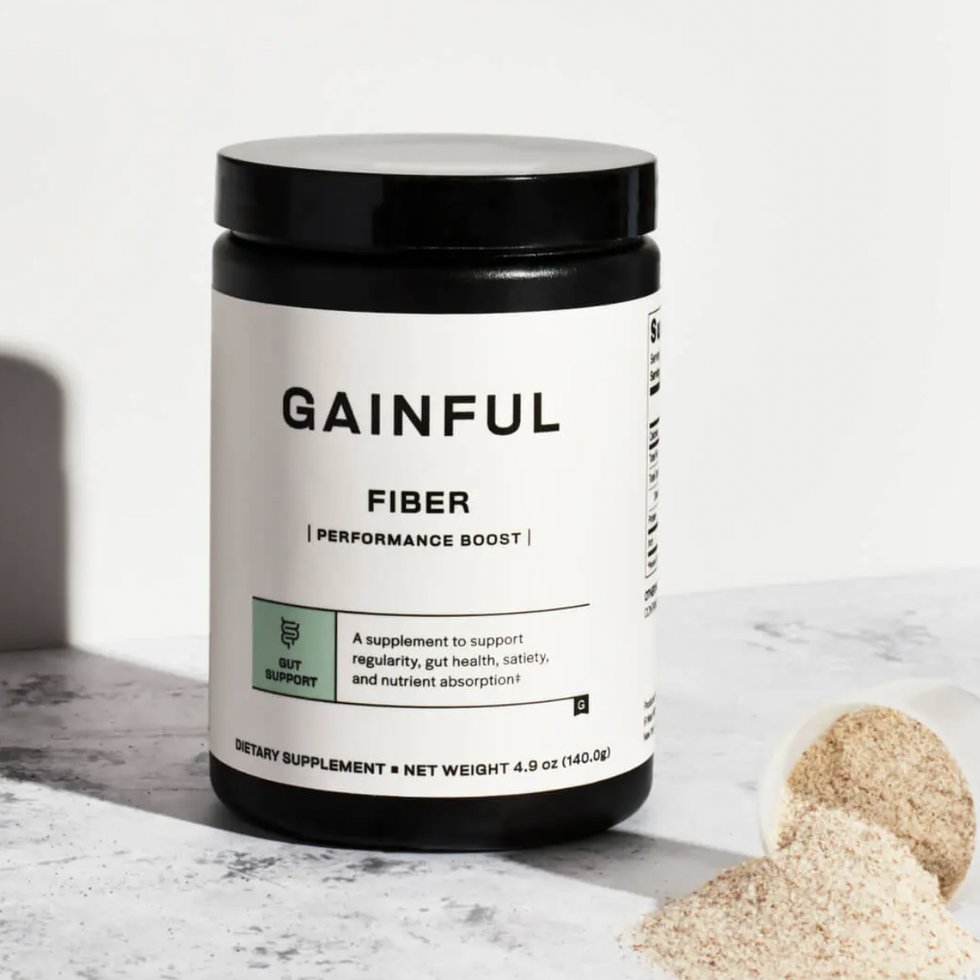
Best Fiber Supplement from Oat
Gainful Fiber Performance Boost
Read more
-
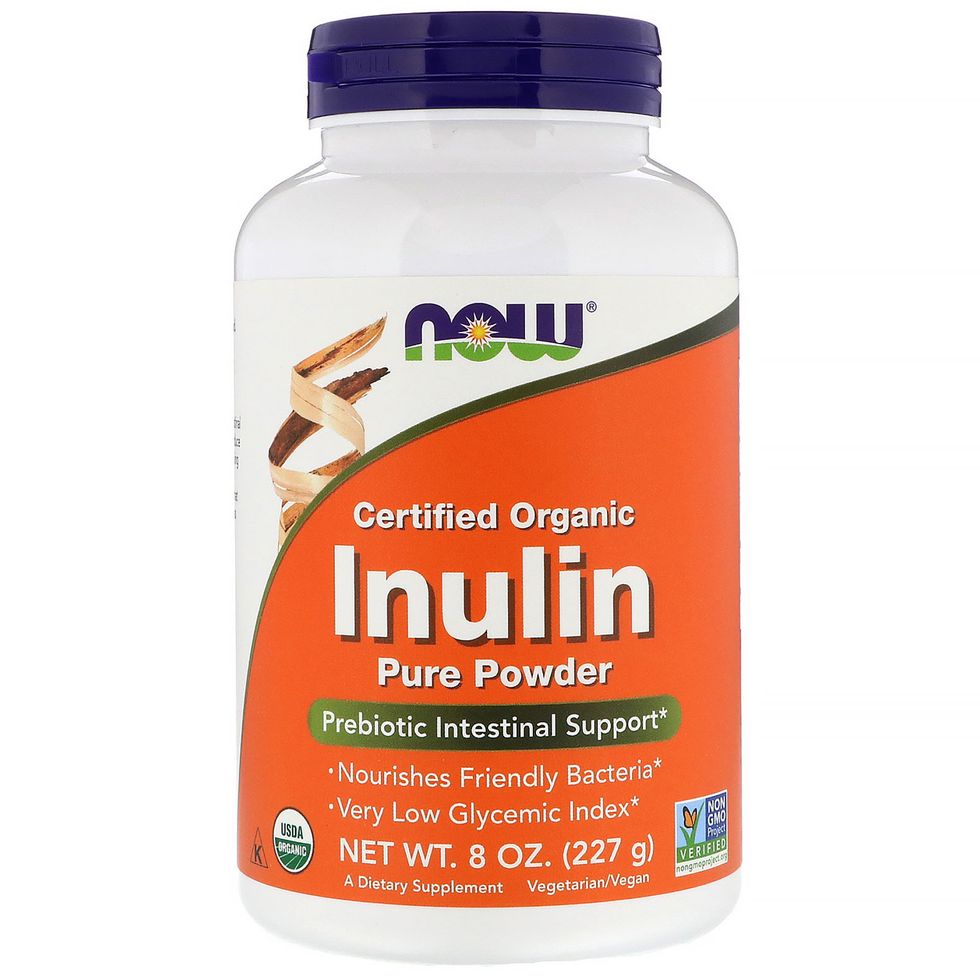
Best Inulin Fiber Supplement
NOW Foods Certified Organic Inulin Pure Powder
Read more
-

Best Psyllium Fiber Supplement with Probiotics
ORGANIC INDIA Psyllium Husk Pre & Probiotic Fiber
Read more
-
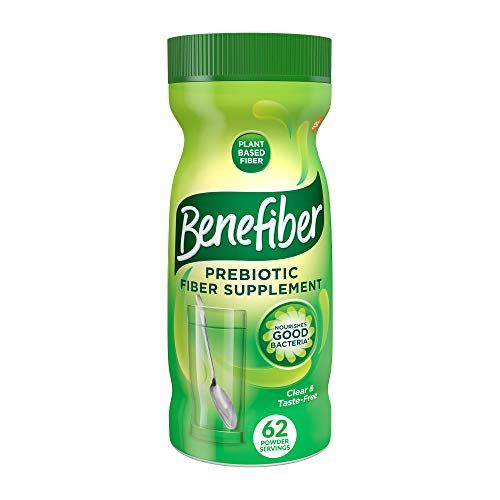
Best Wheat-Based Fiber Supplement
Benefiber Daily Prebiotic Fiber Supplement Powder
Read more
Soluble fiber, which dissolves into a gel in water and is found in foods like oatmeal, nuts, and beans, helps keep blood sugar in check and can lower cholesterol. Insoluble fiber, which remains intact in water and is found in wheat, rice, and many fruits and vegetables, keeps things moving through your digestive system and prevents constipation.
Consuming enough fiber overall might reduce your risk of heart disease, type 2 diabetes, diverticulitis (inflammation of the small intestine that’s common among older adults), and some cancers.
Read more: How Men’s Health Thoroughly Tests and Reviews Nutrition Products
Of course, it’s always best to consume your nutrients from food. “Fiber-rich foods have additional components that provide added benefits to gut and overall health,” says Sharon Puello, RD, a certified diabetes educator based in Yonkers, New York.
“These include prebiotics, phytonutrients, vitamins, and minerals.” In other words: You’ll take in far more nutrition from an apple or a bowl of lentil soup than you will from a scoop of fiber powder in your water.
So, which fiber supplements are actually worth it? We’ve rounded up 10 dietitian-approved picks below.
Best Multivitamins | Best Supplements for Men | Best Muscle-Building Supplements | Best Whey Protein Powder | Best Tasting Protein Powder
Best Guar Fiber Supplement
Tomorrow’s Nutrition SunFiber

Best Guar Fiber Supplement
Tomorrow’s Nutrition SunFiber
Pros
- Low glycemic index
- Dissolves quickly
- Actually tasteless
- Can help with diarrhea
- Informed Choice-certified
Cons
- A full dose may be too much for some people
- Pricey
| Type of fiber | Soluble |
|---|---|
| Fiber per serving | 6 grams |
| Price per serving | $1.07 |
“Sunfiber is a good, gentle option that gives you soluble fiber along with prebiotics,” Puello says. It packs six grams of fiber per serving and contains no other ingredients. Plus, it dissolves easily in hot or cold liquid.
Read more: Best Vegan Meal Delivery Services
Best Fiber Supplement from Oat
Gainful Fiber Performance Boost

Best Fiber Supplement from Oat
Gainful Fiber Performance Boost
Pros
- Easy on the stomach
- Tasteless
- Adds volume to smoothies and shakes
- Good balance of insoluble and soluble fiber
| Type of fiber | Insoluble and soluble |
|---|---|
| Fiber per serving | 5 grams |
| Price per serving | $1.57 |
Adequate fiber intake can also promote a feeling of fullness, potentially aiding in weight management. Gainful’s Fiber Boost contains expert-recommended amounts of beta glucan, a heart-healthy soluble fiber sourced from oats. Simply mix it into a protein shake, smoothie, or morning coffee to jumpstart your day and get things moving.
Best Inulin Fiber Supplement
NOW Foods Certified Organic Inulin Pure Powder

Best Inulin Fiber Supplement
NOW Foods Certified Organic Inulin Pure Powder
Now 20% Off
Pros
- Offers prebiotics
- Low glycemic index
- Great value
Cons
- May not offer enough fiber per serving for some
| Type of fiber | Insoluble |
|---|---|
| Fiber per serving | 2.5 grams |
| Price per serving | $0.12 |
Just a teaspoon of Now Foods Certified Organic Inulin delivers 2.5 grams of inulin, a type of soluble prebiotic fiber. In addition benefits like better digestion and a more regular bathroom schedule, inulin has been shown to support a healthy gut microbiome.
Read more: Best Vegan Protein Powders
Best Psyllium Fiber Supplement with Probiotics
ORGANIC INDIA Psyllium Husk Pre & Probiotic Fiber

Best Psyllium Fiber Supplement with Probiotics
ORGANIC INDIA Psyllium Husk Pre & Probiotic Fiber
Pros
- Contains pre & probiotics
- Great value
- Contains both insoluble & soluble fiber
Cons
- More detectable in taste and texture than some other options
| Type of fiber | Insoluble & soluble |
|---|---|
| Fiber per serving | 4 grams |
| Price per serving | $0.30 |
Psyllium husk contains both soluble and insoluble fiber, which makes it a great choice if you’re dealing with constipation (since most supplements only contain soluble fiber, which draws water but doesn’t sweep things through your digestive tract).
Organic India Psyllium Husk Pre & Probiotic Fiber contains 4 grams fiber per tablespoon, and it is best used blended into smoothies or stirred into oatmeal, since it takes on a gummy texture in water.
Read more: Best Supplements for Men
Best Wheat-Based Fiber Supplement
Benefiber Daily Prebiotic Fiber Supplement Powder

Best Wheat-Based Fiber Supplement
Benefiber Daily Prebiotic Fiber Supplement Powder
Pros
- Tasteless
- Mixes into water seamlessly
- Contains probiotics
- Great value
Cons
- Not suitable for those with Celiac disease
| Type of fiber | Insoluble |
|---|---|
| Fiber per serving | 3 grams |
| Price per serving | $0.20 |
Made with wheat dextrin, Benefiber contains only soluble fiber and delivers three grams per two-teaspoon serving. It doesn’t thicken in liquid the way many other fiber supplements do, so you can add it to sauces and drinks without messing with the texture.
Read more: Best Muscle-Building Supplements
Best Fiber Supplement Pill for Bulking
Citrucel Smartfiber Caplets
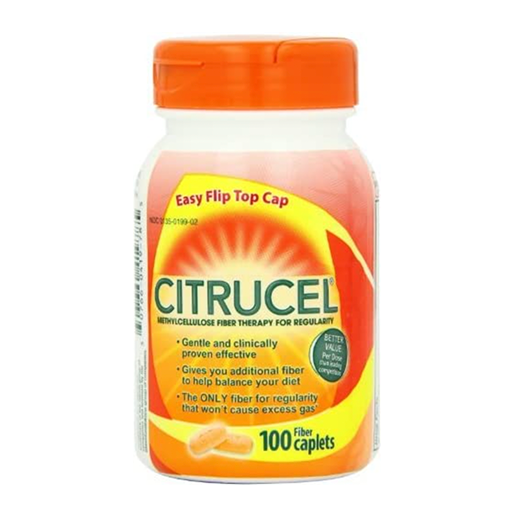
Best Fiber Supplement Pill for Bulking
Citrucel Smartfiber Caplets
Pros
- Easy to take on the go
- Designed to relieve occasional constipation
- Tasteless
Cons
- Can make stool pass too frequently for some
- 1 dose = at least 4 caplets
- Pricey
| Type of fiber | Soluble |
|---|---|
| Fiber per serving | 2 grams |
| Price per serving | $0.80 |
Metylcellulose, a semi-synthetic fiber made from treated wood pulp, is a soluble fiber found in many over-the-counter supplements. It’s non-fermentable, meaning that it’s less likely to cause gas than some other types of fiber. Two caplets of Citrucel methylcellulose with Smartfiber will give you 1 gram of fiber, and you can take up to 12 caplets per day.
Read more: Best Whey Protein Powder
Best Acacia Fiber Supplement
365 by Whole Foods Market Acacia Fiber
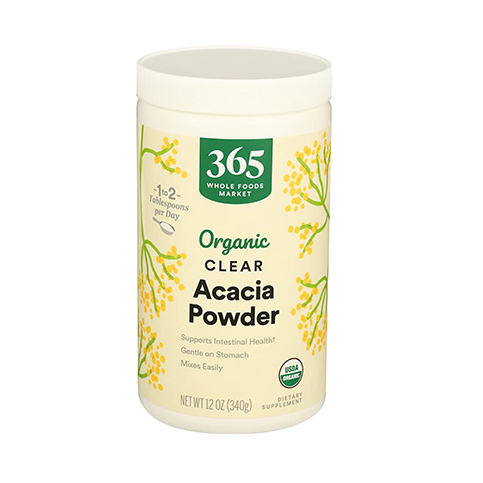
Best Acacia Fiber Supplement
365 by Whole Foods Market Acacia Fiber
Pros
- Well tolerated by most users
- No aftertaste
- Dissolves in water easily
Cons
- Thick, goopy consistency
| Type of fiber | Soluble |
|---|---|
| Fiber per serving | 5 grams |
| Price per serving | $0.48 |
Another winner from Whole Foods Market. This 365 Organic Acacia Clear Fiber provides five grams of soluble fiber per tablespoon. “This fiber source provides both soluble and insoluble fiber, although proportionally it’s mostly soluble fiber,” says Gorin, adding that this supplement helps with elimination, as well as gas.
“Acacia is a prebiotic fiber that comes from the sap of acacia trees,” says Yawitz. “This flavorless powder mixes well into liquids and lacks the gritty texture common among fiber supplements,” she says.
Read more: Best Protein Bars
Best No-Frills Psyllium Fiber Supplement
Konsyl Daily Psyllium Fiber
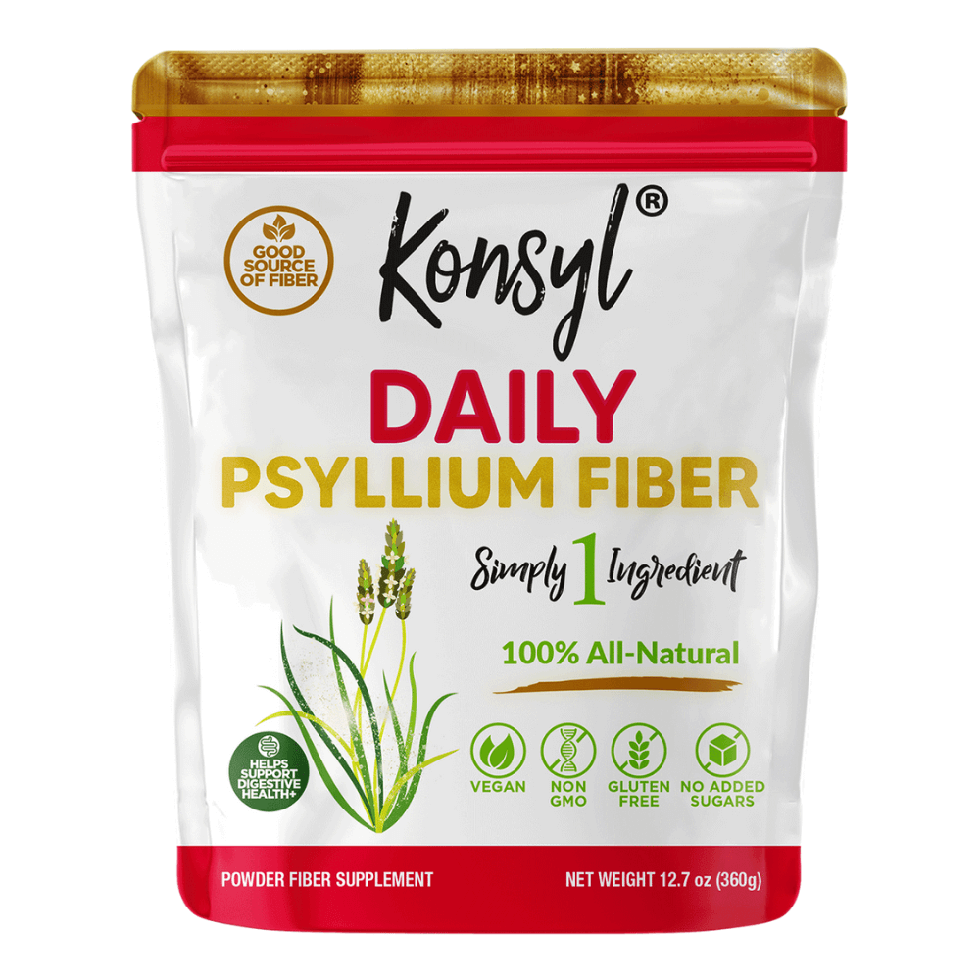
Best No-Frills Psyllium Fiber Supplement
Konsyl Daily Psyllium Fiber
Pros
- Mixes well into liquids and baked goods
- Contains soluble and insoluble fiber
- Simple ingredients (there’s only 1!)
Cons
- Contains iron, which may interact with certain medications
| Type of fiber | Soluble and insoluble |
|---|---|
| Fiber per serving | 5 grams |
| Price per serving | $0.42 |
“Many fiber powders contain artificial sweeteners, food dyes, and artificial flavors,” says Yawitz. “But Konsyl Daily Psyllium Fiber contains only one ingredient: psyllium husks. One teaspoon contains three grams of soluble fiber and two grams of insoluble fiber.”
Read more: Best Pea Protein Powders
Best Fiber Supplement Laxative Pill
FiberCon Fiber Therapy
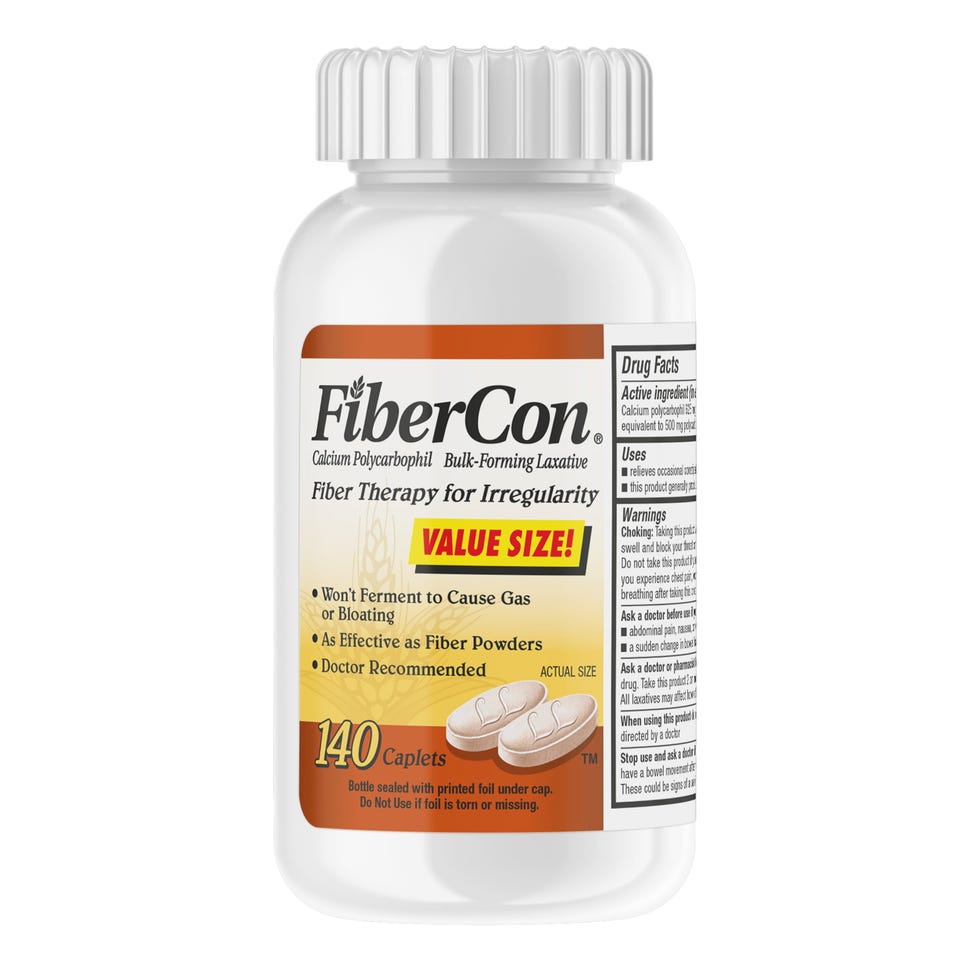
Best Fiber Supplement Laxative Pill
FiberCon Fiber Therapy
Pros
- Non-fermentable (less likely to cause gas or bloating)
- Contains calcium (A con for some)
- Easy to take on the go
Cons
- Pricey
- 1 serving = 2 pills 4 times daily
| Type of fiber | Soluble |
|---|---|
| Fiber per serving | 4 grams |
| Price per serving | $0.90 |
“Polycarbophil is a non-fermentable bulk-forming laxative (translation: It’ll help you poop without making you gassy),” says Yawitz. “FiberCon contains the equivalent of 500 milligrams of polycarbophil per dose in convenient capsule form.”
Read more: Best Plant-Based Protein Bars
Most Nutritious Fiber Supplement
Great Value Organic Chia Seeds
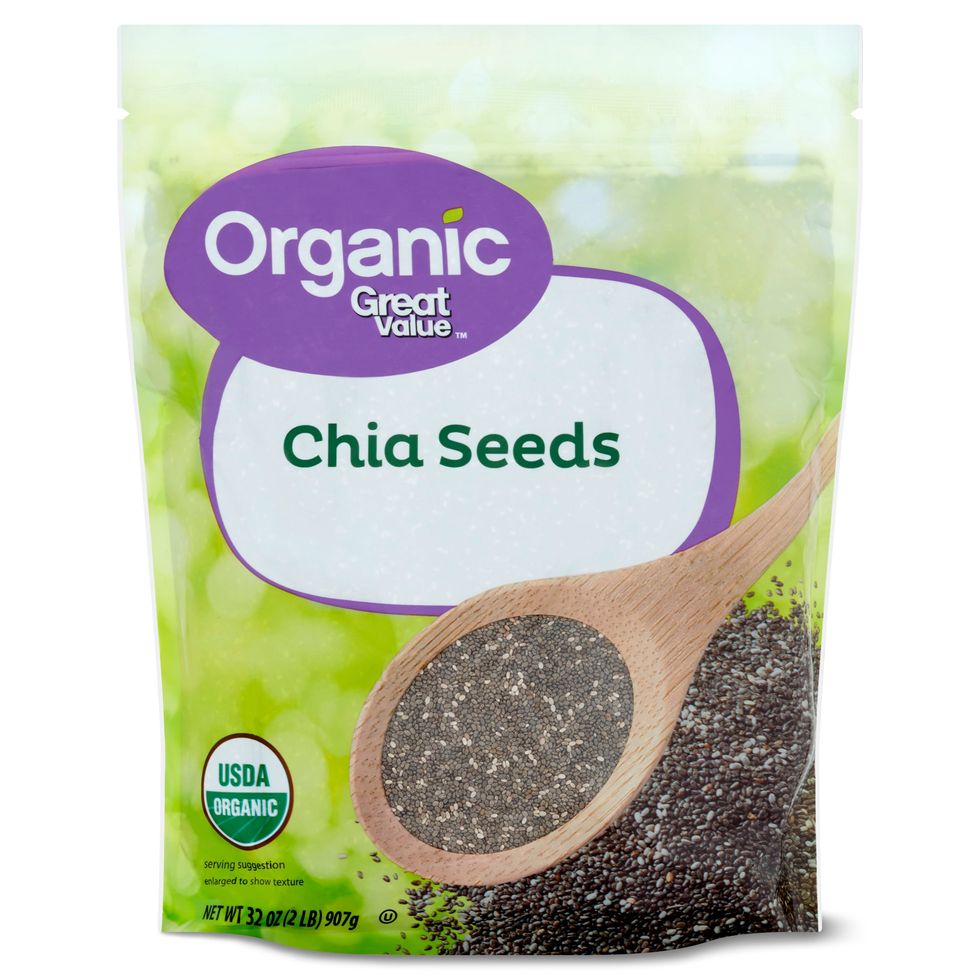
Most Nutritious Fiber Supplement
Great Value Organic Chia Seeds
Pros
- Contains healthy fats (omega 3 fatty acids)
- Provides much more nutrition than traditional supplements
- Simple ingredients (just one)
- Versatile in use
Cons
- Texture can be off-putting to some
| Type of fiber | Soluble |
|---|---|
| Fiber per serving | 10 grams |
| Price per serving | $0.28 |
Here’s a bonus idea from Yawitz if you’re not a big fan of pills and powders: Eat more chia seeds. “Chia seeds contain an impressive six grams of (mostly soluble) fiber with some heart-healthy omega-3 fatty acids to boot,” she says. “Sprinkle them over yogurt, stir them in smoothies, or mix them with water to form a gel.”
Read more: Best Multivitamins
What Is a Fiber Supplement?
In addition to obtaining fiber through food sources, there are a variety of fiber supplements on the market. “Fiber supplements contain fiber that help with issues such as constipation and also help to manage conditions such as Irritable Bowel Syndrome (IBS),” says Amy Gorin, M.S., RD/N, owner of Plant Based with Amy. “In most cases, getting fiber directly from food is ideal,” Gorin says.
Kim Yawitz, RD, a gym owner in St. Louis, MO, adds that fiber-rich foods contain other nutrients that most supplements don’t have (like vitamins, minerals, and antioxidants), so she suggests getting fiber from unprocessed or minimally processed foods whenever possible.
“But if you’re among the 95 percent of American men who don’t get the recommended 38 grams of fiber per day, you might consider taking a supplement,” she concedes, noting that fiber supplements are made with a variety of substances—including psyllium, inulin, methylcellulose, wheat dextrin, glucomannan, and acacia. “These substances may contain soluble fiber, insoluble fiber, or a combination of both.”
While fiber supplements are commonly used to prevent and treat constipation, Yawitz says you might benefit from taking them even if you have no complaints in the poop department. “Studies suggest that soluble fiber supplements, in particular, can help lower blood sugar and cholesterol levels and may even help with weight loss.”
If you’re in the market for a fiber supplement to boost your daily intake, here are 12 that dietitians recommend.
Are Fiber Supplements Beneficial?
While it’s possible to consume all the fiber you need from whole, plant-based foods, fiber supplements exist to fill in the gaps.
“Fiber supplements can be a great way to help get in adequate fiber while you’re learning how to add more fiber from foods to your diet,” Puello says.
Fiber supplements can be helpful for people with chronic diarrhea, since they contain soluble fiber to draw water into your colon and thicken your stools. They can also help ease the symptoms of digestive health conditions like irritable bowel syndrome (IBS) and Crohn’s disease.
Insoluble vs. Soluble Fiber
There are two types of dietary fiber: Insoluble and soluble fiber. Let’s shed some light on the differences between these two types of fiber and their impacts on human health.
Insoluble fiber, as the name suggests, does not dissolve in water. It adds bulk to the stool, which can promote regular bowel movements and preventing constipation. Insoluble fiber is commonly found in whole grains, nuts, seeds, and the skins of fruits and vegetables. It helps to accelerate the passage of food through the digestive system, too. A study published in The American Journal of Clinical Nutrition in 2020 found that a higher intake of insoluble fiber was associated with a reduced risk of colorectal cancer.
On the other hand, soluble fiber readily dissolves in water and forms a gel-like substance in the digestive tract. This gel-like consistency helps to slow down digestion and absorption of nutrients, promoting satiety and stabilizing blood sugar levels. Foods like oats, legumes, fruits (such as apples, oranges, and berries), and some vegetables (such as Brussels sprouts and carrots) in rich in this type of fiber. Good news: It’s been shown to be effective in reducing LDL cholesterol levels. A systemic review and meta-analysis published in BioMed Central Medicine in 2022 concluded that increasing soluble fiber intake significantly lowers LDL cholesterol (a major risk factor for cardiovascular disease).
Soluble fiber also acts as a prebiotic, serving as a food source for beneficial gut bacteria. These bacteria ferment soluble fiber, producing short-chain fatty acids that provide energy for colon cells and support a healthy gut microbiome. A study published in Nutrients in 2020 highlighted the role of soluble fiber in promoting a diverse and balanced gut microbiota, which is associated with a ton of health benefits.
It’s important to note that both insoluble and soluble fiber play a beneficial and distinct roles in promoting overall health, AKA, you need both. Which is why a fiber supplement alone can’t replace the benefit of a diet rich in fibrous foods.
How to Choose a Fiber Supplement
Type of fiber: Different fiber supplements contain various types of fiber, such as psyllium husk, methylcellulose, inulin, or glucomannan. Understand the specific type of fiber included in the supplement and its potential benefits for your health needs.
Solubility: Some fiber supplements are soluble, meaning they dissolve in water, while others are insoluble and do not dissolve. Soluble fiber can help with digestion and managing cholesterol levels, while insoluble fiber is best to regulate bowel movements.
Dosage and fiber content: Check the dosage instructions and the amount of fiber provided per serving. And don’t overdo it. “I recommend no more than one-fourth of your fiber coming from supplements daily,” Puello says.
For men, that’s about eight grams. (The Dietary Guidelines for Americans suggest a daily intake of 25 to 38 grams of fiber, including a combination of insoluble and soluble fiber.)
Additional ingredients: “When looking for a fiber supplement you want to look for one free of artificial colors, flavors, and sweeteners, as well as any ingredients you may be intolerant to,” Puello says. “Ideally, you want to choose a supplement that contains prebiotic fiber as well,” she says, as this type of fiber feeds probiotic bacteria in your gut to support overall health.
If you have known allergies or sensitivities, it’s a good idea to carefully review the product’s label for any allergens or potential cross-contamination risks, such as gluten, soy, dairy, or nuts.
Quality: Look for reputable brands that undergo testing and certification from recognized organizations to ensure product quality, purity, and safety. Check for third-party testing and certifications, such as NSF International or USP verification.
Value: Compare prices among different brands and consider the overall value based on the fiber content, quality, servings per containers, and any additional benefits (such as added vitamins and minerals) provided by the supplement.
Customer reviews: Read customer reviews and feedback to gain insights into the effectiveness and experiences of others who have used the specific fiber supplement you are considering.
Why You Can Trust Us
At Men’s Health, we take great pride in providing our readers with reliable and trustworthy product recommendations. We believe that our readers deserve the best, which is why we always make sure to conduct thorough research and testing before making any recommendations.
For this story, we spent hours interviewing registered dietitians and researching the top-rated and best-selling fiber supplements on the market. Our writers and editors are also experts in their own right, using their informed opinions to select products and ensuring that our content is of the highest quality.
The products that made it onto this list contain supplemental fiber in quantities meant to improve your daily fiber intake, but not in lieu of fiber acquired through foods including fruits, vegetables, legumes, and whole grains. Our product recommendations are purely editorial, and while we may receive free products to test and review, we only recommend the products we are most impressed by. We never let retailers or public relations contacts dictate our content or product coverage, which is why you can trust us to provide you with reliable and unbiased product recommendations.
How We Selected
Men’s Health health editors and experts spent countless hours researching dozens of top-rated, dietitian-approved fiber supplements to determine which are actually worth taking. We paid close attention to evaluate the most important features, such as ingredients, type of fiber, price, and quality. The list above represents our carefully chosen picks of the best fiber supplements to shop in 2023.

Talene Appleton is a fitness and food writer and editor, certified personal trainer (NASM-CPT), and former professional dancer based in New York City. Passionate about both exercise and cuisine, she merges her fitness, nutrition and culinary expertise with the goal of motivating others to embrace balanced healthy living. Her work has appeared in Men’s Health, General Surgery News, The Food Institute, The Nessie, and more.

